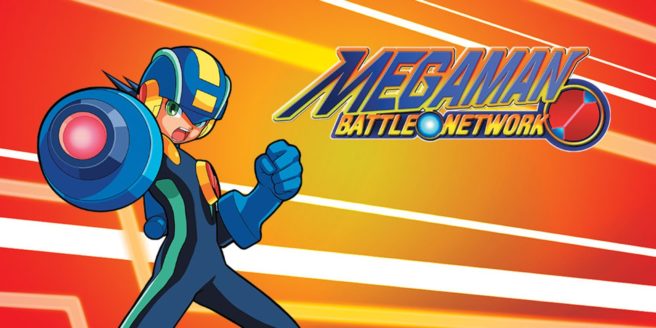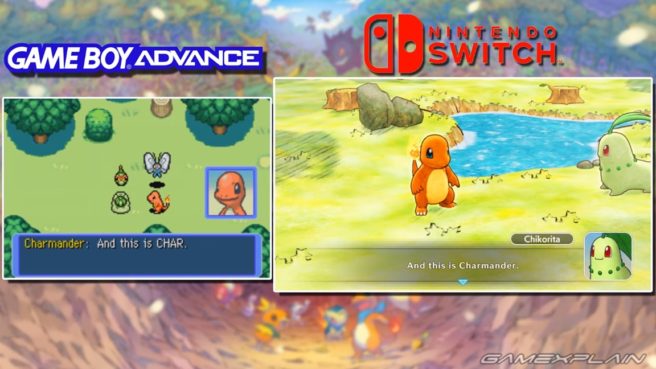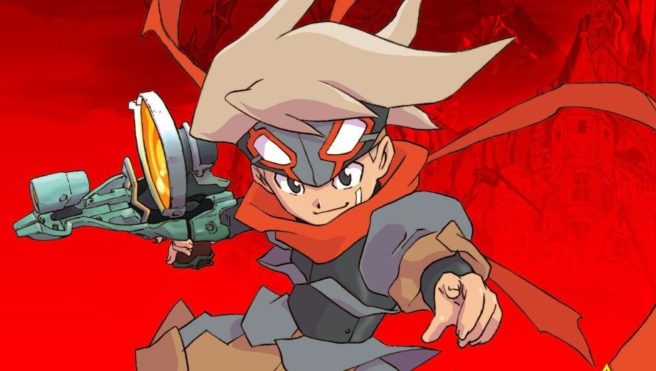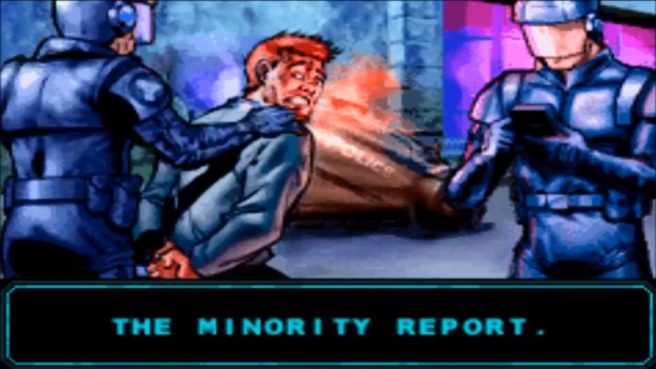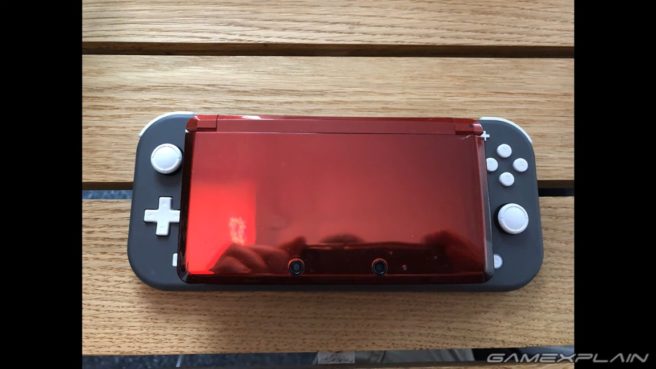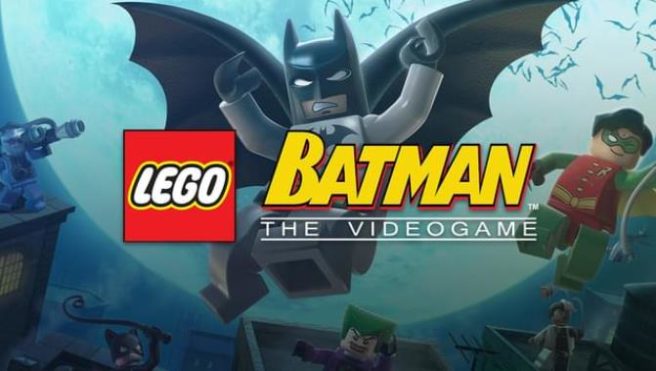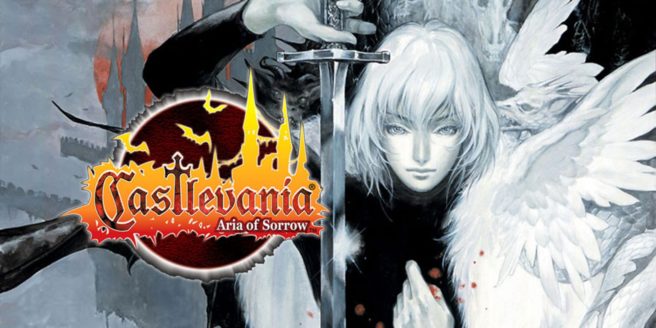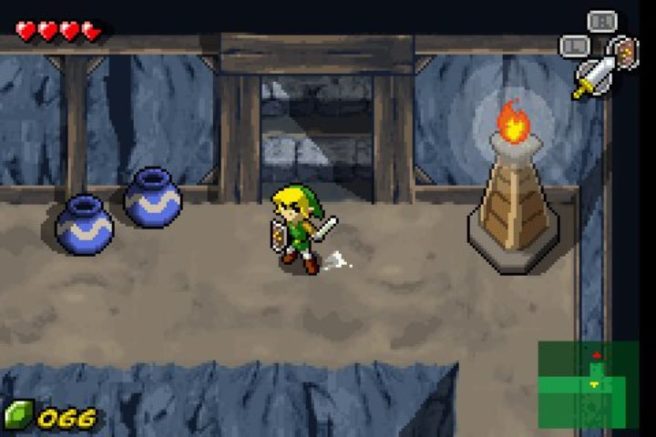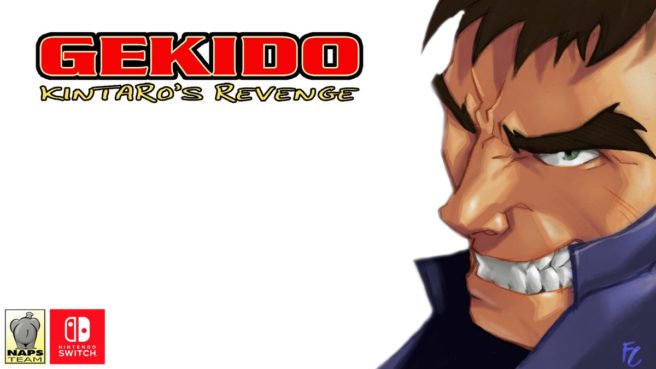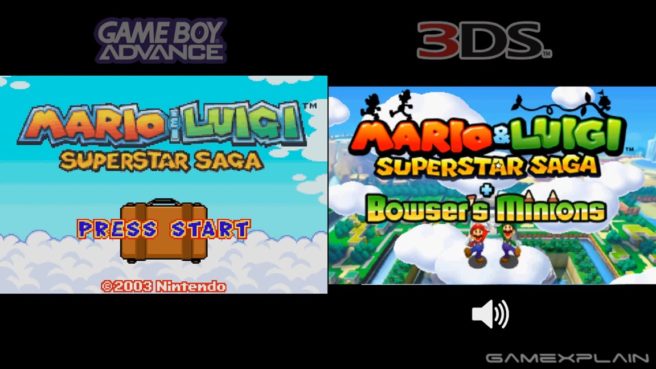Capcom on the possibility of a new Mega Man Battle Network
Posted on 6 years ago by Brian(@NE_Brian) in GBA, News | 0 comments
Capcom seems to be doing more with Mega Man now than it has in awhile. Mega Man 11 came out in 2018 after the series had been mostly dormant, and we’ve seen a bunch of collections as of late. Even the Mega Man Zero / ZX titles are receiving some attention with the latest collection due out next month.
However, one Mega Man sub-series that hasn’t been touched in many years is Mega Man Battle Network. As part of a lengthy interview with Tokyo TV, developers Masakazu Eguchi and Kazuhiro Tsuchiya addressed the possibility of a new entry.
Here’s what the two had to say, as translated by Rockman Corner:
Video: Pokemon Mystery Dungeon: Blue/Red Rescue Team vs. Pokemon Mystery Dungeon: Rescue Team DX comparison
Posted on 6 years ago by Brian(@NE_Brian) in DS, GBA, Switch, Videos | 0 comments
Well over a decade later, the first Pokemon Mystery Dungeon is returning on Switch with a new remake in March. A new video from GameXplain, posted below, shows how the Switch version compares with the original.
Hideo Kojima wanted Boktai: The Sun Is in Your Hand to come with a a sensor that measured how your breath smelled
Posted on 6 years ago by Brian(@NE_Brian) in GBA, News | 0 comments
Boktai: The Sun Is in Your Hand has an original mechanic that goes beyond the actual gameplay. Through a light sensor included with the cartridge, players are able to charge up solar weapons by going outside.
Hideo Kojima of Metal Gear fame was behind Boktai, and he actually had ever greater ambitions for the GBA title. Had he been able to follow through with his vision, it would have shipped with a sensor measuring how your breath smelled.
Here’s a recent translation from Shmuplations that was published in a 2003 issue of Nintendo Dream:
Steven Spielberg wanted Minority Report GBA game to have guns removed
Posted on 6 years ago by Brian(@NE_Brian) in GBA, News | 0 comments
Have you ever heard of Minority Report: Everybody Runs? If you said no, we wouldn’t blame you.
Activision originally published the movie-based Minority Report: Everybody Runs for the Game Boy Advance way back in 2002. It was made by Torus Games. Alex Hutchinson, who directed the likes of Assassin’s Creed III and Far Cry 4, started his career working on that old GBA title.
Minority Report: Everybody Runs might be noteworthy if only for only one reason. During a recent episode of the Game Informer Show, Hutchinson revealed that movie director Steven Spielberg’s assistant reached out to the team during development. Spielberg apparently wanted the guns removed as they wouldn’t fit in with the GBA’s audience – which he felt was more kid-friendly. In its place, Torus Games was given a suggestion to replace the guns with the Sick Stick – a weapon already in the game – that makes you vomit.
Switch Lite size compared to GBA, DS Lite, 3DS XL, Switch, PSP, and PS Vita
Posted on 6 years ago by Brian(@NE_Brian) in 3DS, DS, GBA, Switch, Videos | 0 comments
GameXplain has provided a few photos comparing the new Switch Lite to a number of other systems, including the GBA, DS Lite, 3DS XL, Switch, PSP, and PS Vita. View the full set in the video below.
More: comparison
Top ten best-selling superhero games of all-time in the U.S.
Posted on 6 years ago by Brian(@NE_Brian) in DS, GameCube, GBA, News, Wii, Wii U | 0 comments
NPD’s Mat Piscatella has provided a listing of the top ten best-selling superhero games of all times in the United States.
As far as titles on Nintendo platforms go, LEGO Batman is towards the top. Other releases such as the Spider-Man movie games also appear.
Below are the full results:
Koji Igarashi on why Castlevania: Aria of Sorrow was made for GBA
Posted on 6 years ago by Brian(@NE_Brian) in GBA, News | 0 comments
Shmuplations has translated a pair of classic interviews with the developers behind Castlevania: Aria of Sorrow. One of these was a discussion with Koji Igarashi, the game’s producer – and is currently leading the way on Bloodstained: Ritual of the Night.
One interesting part of the interview came about when Igarashi was asked about why Aria of Sorrow was developed for the Game Boy Advance. He cited strong sales of Circle of the Moon and the fact that 2D games were more acceptable on the device in comparison to something like the PlayStation 2.
Mario + Rabbids creative director made a pitch for a demo of Zelda: Wind Waker on the GBA
Posted on 8 years ago by Brian(@NE_Brian) in GBA | 21 Comments
You may know Davide Soliani as the creative director behind Mario + Rabbids Kingdom Battle. But many years before that Switch game, Soliani wanted to work on another Nintendo franchise: Zelda.
During the GBA era, Soliani says he and artist Fabio Pagetti “almost convinced our managing director to let us produce a demo for a GBA version of Wind Waker.” Unfortunately, it didn’t get very far. There is also no working demo sadly.
Soliani shared the following on Twitter:
GBA game Gekido Kintaro’s Revenge coming to Switch
Posted on 8 years ago by Brian(@NE_Brian) in GBA, News | 11 Comments
Do you remember the GBA game Gekido Kintaro’s Revenge? That same title is now coming to Switch.
Naps Team revealed on Twitter that Gekido Kintaro’s Revenge will be on the console soon. Other than the tweet below, we don’t have much to go on.
Gekido Kintaro's Revenge… Coming soon on Nintendo Switch#NintendoSwitch #Gekido #NapsTeam #Nintendo #indiegames#IndieGameDev pic.twitter.com/BVChlRA8oq
— Naps Team (@NapsTeam) December 5, 2017
Gekido Kintaro’s Revenge features beat ’em up gameplay. It’s unclear in what ways (if at all) the Switch version will be updated, but we’ll bring you further details as soon as we have them.
More: Naps Team
Mario & Luigi: Superstar Saga – GBA vs. 3DS video comparison
Posted on 8 years ago by Brian(@NE_Brian) in 3DS, GBA, Videos | 9 Comments
GameXplain put together a video comparing the original version of Mario & Luigi: Superstar Saga to the 3DS remake. Get a look at how the two stack up against each other below.
